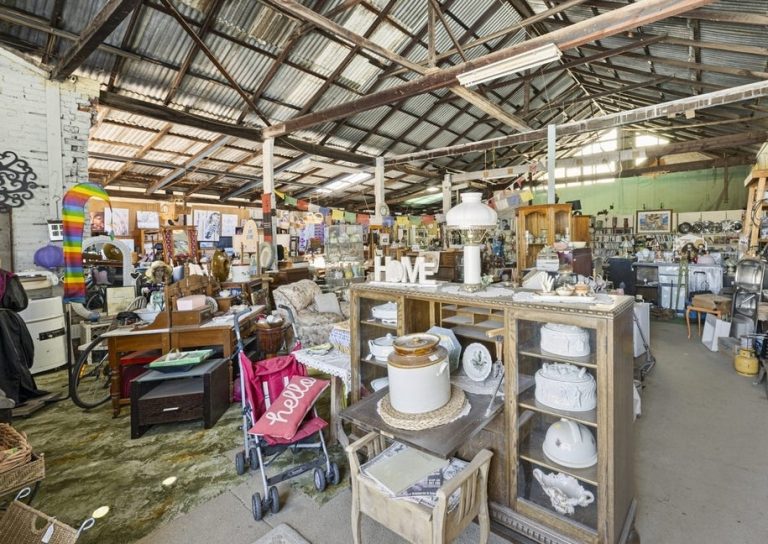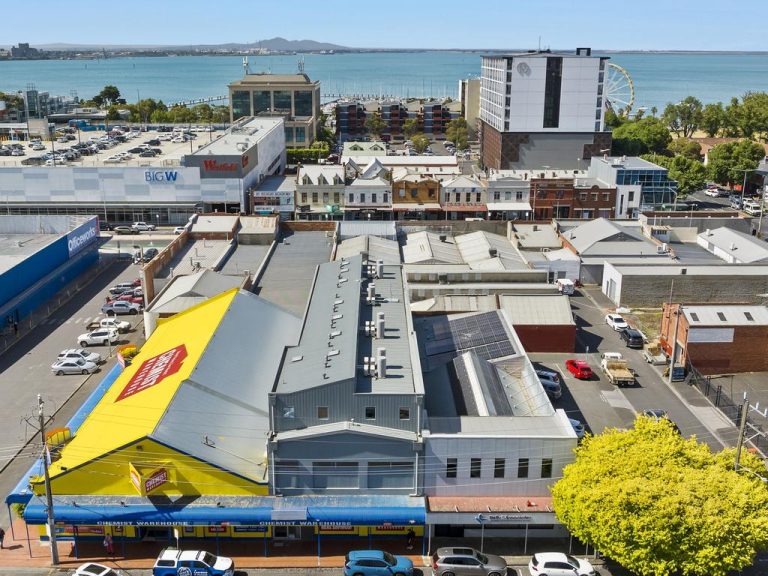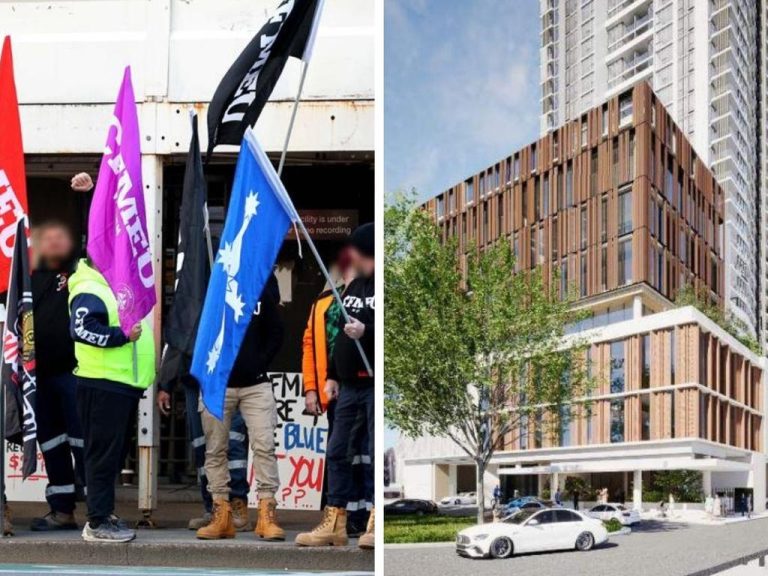Sydney, Melbourne among the hotspots with Australia still an attractive destination for global capital

An Emerging Trends in Real Estate Asia Pacific Survey found Sydney ranked third behind Singapore and Tokyo in city investment prospects, while Melbourne, pictured, came in at sixth spot. Picture: Visit Victoria/Emily Godfrey
Rising inflation and interest rates, equity market volatility and geopolitical tensions have contributed to a slowdown in global commercial real estate transactions.
Australia has not been spared.
According to Cushman & Wakefield, the total investment volumes in Australia fell by 18.5 per cent in 2022 compared with 2021, from $54bn to $44bn. Additionally, foreign investment in Australia fell by 14.3 per cent over the same period, from $21bn to $18bn. However, despite the decrease in overall investment, the proportion of foreign investment as a percentage of total transactions increased slightly from 38.9 per cent to 40.9 per cent.
Despite the short-term dip in transaction volumes, global capital is expected to play a significant role in driving an increase in transaction activity in Australia during the second half of the year and into 2024.
Australia’s largest markets, Sydney and Melbourne, are the two most preferred markets for real estate investment in the Asia Pacific region in 2023.
According to ANREV’s survey of 82 global institutional investors who manage more than $1.1tn of real estate assets, Sydney was the top preference of 86 per cent of investors, while Melbourne was the preferred destination for 83 per cent. Tokyo and Seoul also ranked highly, with 66 per cent and 55 per cent of investors indicating a preference for these markets.
Drilling down into Asia Pacific’s top city/sector investment destinations, Australian markets also stand out. Sydney residential takes the first place as the preferred city/sector combination in 2023, with 62 per cent of investors indicating this preference. Melbourne residential (59 per cent) and Sydney office (55 per cent) take the second and third places followed closely by a tie between Tokyo industrial/logistics, Melbourne office and Seoul industrial/logistics (52 per cent). The strong preference for residential exposure is driven by the opportunities global capital sees in the fledgling Australian build to rent space.
Australian markets also rank highly in the 2023 PWC ULI Emerging Trends in Real Estate Asia Pacific Survey of 233 global investors. Sydney ranked third behind Singapore and Tokyo in city investment prospects, while Melbourne came in at sixth place.

Australia’s largest markets, Sydney, pictured, and Melbourne, are the two most preferred markets for real estate investment in the Asia Pacific region in 2023. Picture: Julian Andrews
There are a number of reasons why Australia will be a go-to market for global investors when capital flows pick-up.
Firstly, Australia’s economy is projected to grow at a faster rate than most other major global economies in 2023 and 2024.
The IMF’s latest projections show that Australia is expected to grow by 1.6 per cent in 2023, ahead of Canada (1.5 per cent), the US (1.4 per cent), France (0.7 per cent), Germany (0.1 per cent), and the UK (-0.6 per cent). Similarly, in 2024, Australia is expected to grow faster than all of these major global economies.
Secondly, Australia’s population growth is forecast to be one the fastest of the major advanced economies. According to the Centre for Population, Australia’s population is set to grow by 1.4 per cent in each of 2022-23, 2023-24 and 2024-25.
This relatively strong growth will help underpin the demand for commercial real estate and housing.
Thirdly, Australia is seen as a safe haven. Even if global markets rebound, volatility will remain a feature in the years ahead.
Australia is ranked fourth in JLL’s 2022 Global Real Estate Transparency Index. As JLL noted in its report, the leading countries are setting higher standards “from new regulations covering energy efficiency and emissions standards for buildings and climate risk reporting; to raising the bar for anti-money laundering and beneficial ownership reporting; to providing deeper data on everything from office utilisation rates to niche property types, supported by the rapid uptake of technology”.
Thirdly, ESG will continue to be high on the agenda of investors. Australian real estate companies and funds are leading the global cohort in sustainability and governance.
According to GRESB, the global benchmark for environmental, social and governance performance of real assets, in 2022 Oceania recorded the highest regional average score of 82 in the Standing Investment Benchmark and 88 in the Development Benchmark.
Fourthly, unlike other parts of the world, the Australia build to rent sector is immature.
Global investors see this sector as an attractive opportunity with potential for significant growth in this market.

Adrian Harrington, chair of the National Housing Finance & Investment Corporation.
Already global investors such as Greystar, Sentinel, Blackstone, Hines, QuadReal Property Group and Cadillac Fairview are investing here with others circling.
Fifthly, Australia’s track record of generating superior risk-adjusted real estate returns is anticipated to continue. Australia has consistently outperformed other markets over three, five and 10 years.
Finally, many of the largest global players already have a presence in Australia either directly or via local fund managers.
Global investors and managers operating platforms in Australia include AXA, Blackstone, Brookfield, CPPIB, CBRE Investment Management, GIC, LaSalle and Nuveen. Using a combination of local talent and expats flown in from head office, each of these groups have a mandate to grow their respective platforms in Australia.
Not all global investors have established their own platforms in Australia. Instead they have relied on investing with likes of groups like Charter Hall, Dexus, Investa and GPT. Charter Hall, the largest real estate fund manager in Australia, manages investments on behalf of more than 80 global pension funds, insurance companies and sovereign wealth funds from countries such as Canada, Germany, Japan, Netherlands, Switzerland, Singapore, South Korea, the UK and US. Many of these investors will be looking to increase their exposure to Australian real estate going forward.
As interest rates peak and inflation subsides towards the middle of the year, the second half of 2023 is set to be a pivotal period for markets.
Australia is expected to be a significant beneficiary as global capital flows increase.
Among the sectors that are anticipated to be particularly attractive are real estate credit, industrial, build-to-rent and life science, although some investors may encounter difficulties in achieving scale in the latter two sectors. Investment returns will be primarily driven by income, and global capital is likely to find quality assets with long-term leases and strong tenant covenants to be particularly attractive.
Such assets are expected to provide the best long-term risk-adjusted returns.
Adrian Harrington is the chair of the National Housing Finance & Investment Corporation and a non-executive director of Summer Housing







